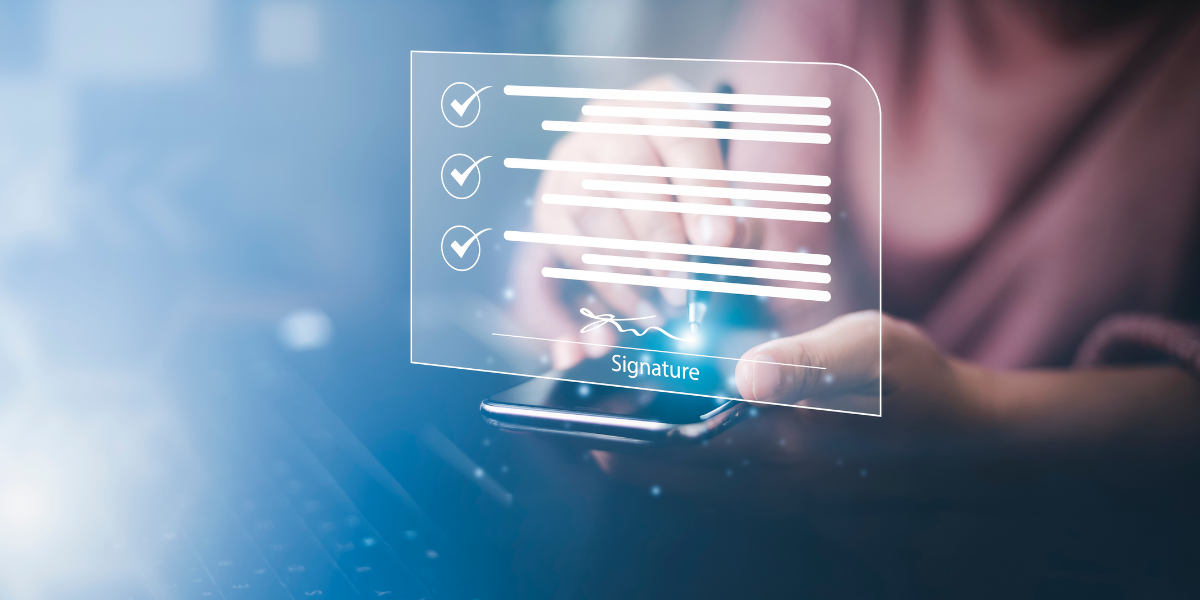Digital ID Verification
Legal professionals are required to have comprehensive KYC (Know Your Customer) and AML (Anti-Money Laundering) procedures in place to manage risks and prevent involvement in fraudulent activities. Failure to comply may result in data, financial and reputational losses that may be difficult to recover from. As part of this process, lawyers and paralegals must verify the identity of their clients whenever they are retained to provide legal services and will engage in or give instructions regarding the receipt, payment, or transfer of funds.
Verifying identity means looking at the documents, data, and information to confirm the client is who they say they are and that the documents relied on for verification are authentic, valid, and current. The Law Society has established comprehensive guidelines regarding client identification requirements built around six main elements: identification, verification, source of funds, monitoring, record keeping, and withdrawal. Additionally, there are a number of acceptable methods to verify a client’s identity, including in-person or virtual verification.
.
Virtual ID Verification with Authentication
Virtual identity verification using digital platforms like video conferencing technology was permitted and became popular during the COVID-19 pandemic due to movement restrictions and the resultant shift towards remote working methods.
The Federation of Law Societies has issued new guidance regarding virtual ID verification using authentication technology. From 2024, lawyers and paralegals who use video conferencing or other virtual means to verify a client’s identity must have a way to authenticate the person’s government-issued photo ID. Confirming identity solely by viewing the individual and their ID through virtual means ─ a temporary measure implemented during the pandemic ─ will no longer be acceptable beyond January 31, 2024.
So, what exactly does authentication involve?
Authentication requires that lawyers and paralegals use a process or method to determine whether an individual’s government-issued photo identification document is authentic and genuine. There are two steps for virtual verification and authentication:
- Asking the individual to scan their government-issued photo identification document using the camera on their mobile phone or electronic device and;
- Using technology to compare the features of the government-issued photo identification document against known characteristics (e.g., size, texture) and security features (e.g., holograms, barcodes) or markers (e.g., logos, symbols).
.
Which Authentication Technology Is Right for Me?
The Law Societies of Ontario and Alberta have recommended some digital ID verification partners that legal professionals may consider. However, the prospect of additional sign-up costs and the learning curve associated with new platforms can be daunting.
Thankfully, with Unity® Practice Management, you already have access to the digital ID verification with authentication tools you need to go above and beyond the regulations in each region.
Unity® Practice Management
Canada’s leading practice management platform, Unity Practice Management, is currently the only platform in Canada that provides:
- Fully compliant ID verification services via Syngrafii’s iinked Sign and Video Signing Room, the only one of Alberta’s recommended digital ID verification partners currently offering both virtual signing and KYC
- Virtual signing and KYC together for real estate and a range of other matter types (including custom matters) in Ontario and Alberta
Unity Practice Management offers a comprehensive solution for digital ID verification, incorporating all the necessary features within the platform. The cost of verification is already included in the basic transaction fee, making it an effortless and cost-effective way to ensure the security of online transactions. With Unity®, users can rest assured that they have access to all the necessary tools to verify client identities safely, efficiently, and reliably.
.
Benefits of Using Unity® Practice Management for Digital ID Verification
- Compliant, time-efficient, and accessible remote signing and notarization solutions for processing real estate closings and other legal transactions
- Secure video signing rooms for client meetings, remote commissioning and signing of documents
- Recorded online signings that create robust audit trails, ensuring compliance and unmatched customer service
If you already use Unity Practice Management, accessing your free digital ID verification, digital signing and video signing is easy. Check out our Unity® Knowledge Base for a step-by-step process.
From intake to invoice, Unity Practice Management can help you better serve your customers. Visit the Dye & Durham website to learn more and get started.
Go to Media











